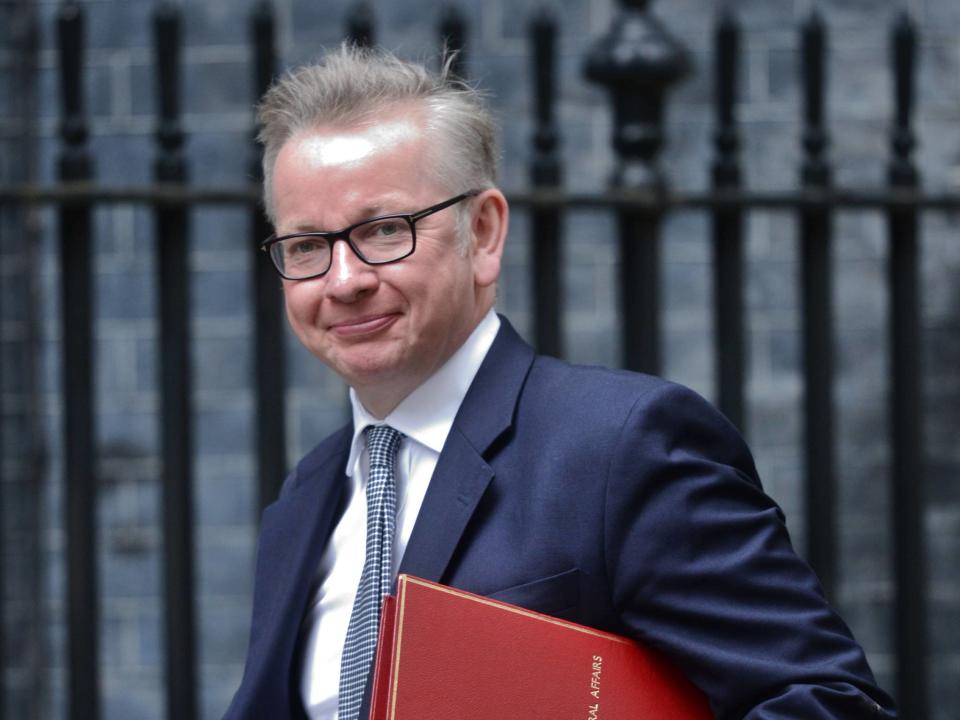Green Brexit or agricultural cuts. Just what is Michael Gove up to?

Amid a growing weight of evidence showing just how damaging Michael Gove’s beloved Brexit will be - just today it was revealed that Britain's budget deficit is deteriorating and I’ve written about the impact on the City and business - he’s put on his shiny salesman’s suit, with all the cynicism that comes with that.
Not long since having returned to the cabinet as Environment Secretary, Mr Gove has said that his vision is for a “green Brexit”.
It sounds nice, and cuddly, doesn’t it, recasting Mr Gove as the liberal Tory he once seemed quite keen to demonstrate himself to be.
So how will he achieve this wondrous creation?
Well, amid calls from Britain’s farming industry for the subsidies it obtains from the EU to be retained after Brexit, Mr Gove has said that while the Government is planning for that (at least for a few years) there will be conditions attached.
He has sought to portray Brexit as a once in a life time opportunity (as opposed to the once in a lifetime disaster that it's shaping up to be) to reform the Common Agricultural Policy, one of the least loved parts of the EU, even by some of its supporters.
Instead of simply having cash thrown at them, farmers, who include some of the UK’s wealthiest landowners, will, post Brexit, have to agree to protect the environment and enhance rural life.
Mr Gove is not prepared to go as far as letting sheep farming wither on the vine (which might encourage a revival in Britain’s forests) but there are things in his speech that environmentalists could find to support.
The CAP’s operation has been blamed for a number of ills, including the steep decline this country's rural wildlife. If an economic subsidy is to be offered to farmers after it has gone, it makes a lot of sense to attach conditions to it that might address that, and encourage other policy aims. The preservation of the environment is an admirable policy aim that few could find fault with.
However, this is Michael Gove we’re talking about here. He is as much of an environmentalist as I am a Premiership footballer.
His voting record (via theyworkforyou.com) tells you all you need to know. Our "Envinonment" Secretary has consistently voted against measures to prevent climate change, a phenomenon that is destructive to farmers, rural Britain, urban Britain, and the economies of both. It's destructive to everyone who lives on this planet.
Of the 28 votes the site recorded between 2008 and 2016, Mr Gove voted in favour of just five measures to address climate change. He vote against on 12 occasions and was absent on 11 more.
If we are to have a “green Brexit” that rather demonstrates that we need someone other than Mr Gove to lead it. He has also, by the way, voted in favour of selling England’s state owned forests. On other environment related issues his record is spotty.
Given all that, it's no wonder that Ed Davey, the former Energy and Climate Change Secretary, descried putting Mr Gove in charge of the environment as “like putting a fox in charge of the hen house”.
So back to that shiny salesman’s suit, and what's going on in the mind of the person wearing it. There is another reason for attaching conditions to economic subsidies, and it has do to with furthering another policy aim: Cutting spending.
Encouraging a “green Brexit” could ultimately simply serve as cover to make subsidies more difficult to obtain. You might argue that that is no bad thing and that the money would be better spent elsewhere. And you might very well be right.
However, the cynicism at work if that is indeed the case, is breathtaking. Breathtaking, but not terribly surprising.

 Yahoo Finance
Yahoo Finance 